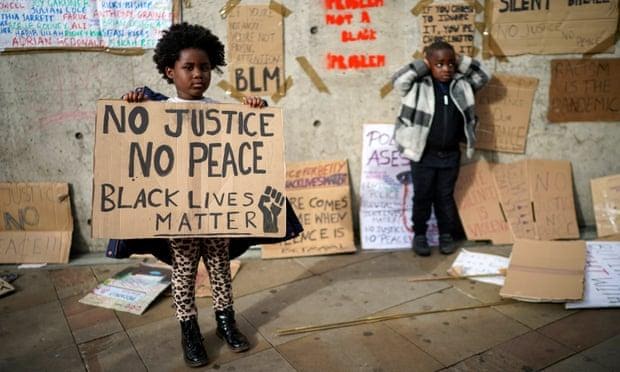A lack of Black history in our schools’ curriculum means that many important contributions and events in our society’s past are being overlooked. Following the impact that the Black Lives Matter movement has had when it comes to considering racism in the UK, what needs to change?
In the wake of Black Lives Matter rallies across the country, the government is facing increasing pressure to include black history in primary and secondary school education.
This proposal has been brought forward by The Black Curriculum, an organisation created in 2019 by Lavinya Stennett, to bring attention to the issue of Black British History not being taught in UK schools. Their mission states that “[they] are working towards changing the national curriculum and building a sense of identity in every young person in the UK.”
This initiative took an important step towards the inclusion of Black history in the National Curriculum thanks to their open letter sent to the Secretary for the Department for Education, Gavin Williamson, back in June.
The letter appealed to the political figure to include the teaching of Black history in classrooms. The organisation explained that it would facilitate the process thanks to their wide range of programmes aimed at young people and “tailored CPD [Continuing Professional Development] training for teachers and leaders”.
Through its website, The Black Curriculum shows the impact of their mission with their workshops consisting of activities related to Black history. The groups of students, who participated, expressed appreciation for the subject and “91% of 15 year olds feel like they have a better understanding of society and would like to learn more”.
There are also other initiatives that are trying to expand the knowledge about Black history and portrays its importance. For example, to raise awareness about The Transatlantic Slave Trade, a project called The World Reimagined planned to expose globe sculptures across the UK in the summer of 2022.
The pieces of art will be erected in public spaces and they will be created by popular artists as well as local schools. Once the public display period finishes, the organisation will auction several of these sculptures and donate the money to groups helping to diminish racial injustices.
The discussion around Black history being taught in schools has come under new scrutiny as October is recognised worldwide as Black History Month and also due to recent rallies against police brutality. These were sparked after American citizens George Floyd and Breonna Taylor (just to name a few) were killed by white police officers.
Police wanted to arrest George Floyd after an employee reported to the authorities that he gave a counterfeit $20 bill at a local shop. Then, the officers attempted to put Floyd in the car but struggled and kept him on the ground for almost eight minutes, while Floyd repeated the now infamous phrase “I can’t breathe”. He was then pronounced dead and Mr Chauvin, the police officer who kept him on the ground, has been arrested on the charge of murder.
Breonna Taylor was killed when authorities entered her house for a drugs investigation thanks to a no-knock search warrant, which allows officers to go into a property without permission. Taylor’s partner, Kenneth Walker, feared it was a burglary and, using a legal firearm, shot one of the officers. Then the police exchanged shots and killed Ms Taylor in her home.
Both killings have sparked a global movement of anti-racism protests which have been going on all summer. Many of the UK protests have been organised by the All Black Lives UK organisation. The platform states “We believe in a world where everyone belongs.”
Individuals protesting for racial justice have also been kneeling on one knee as a sign of protest against racism. This emblematic body language attracted attention from the American football player Colin Kaepernick who started ‘taking a knee’ in 2016 when NFL athletes were required to stand up. The earliest recognition of this gesture goes all the way back to the era of Martin Luther King, during the Civil Rights March when he knelt for prayer.
Prominent politicians from across the political spectrum have voiced their support for the message that Black Lives Matter, but as always, actions speak far louder than words. The time for discussion has passed; what is now needed, inside schools and throughout the rest of society, is real, concrete change.
header image credit: Christopher Furlong/Getty Images

